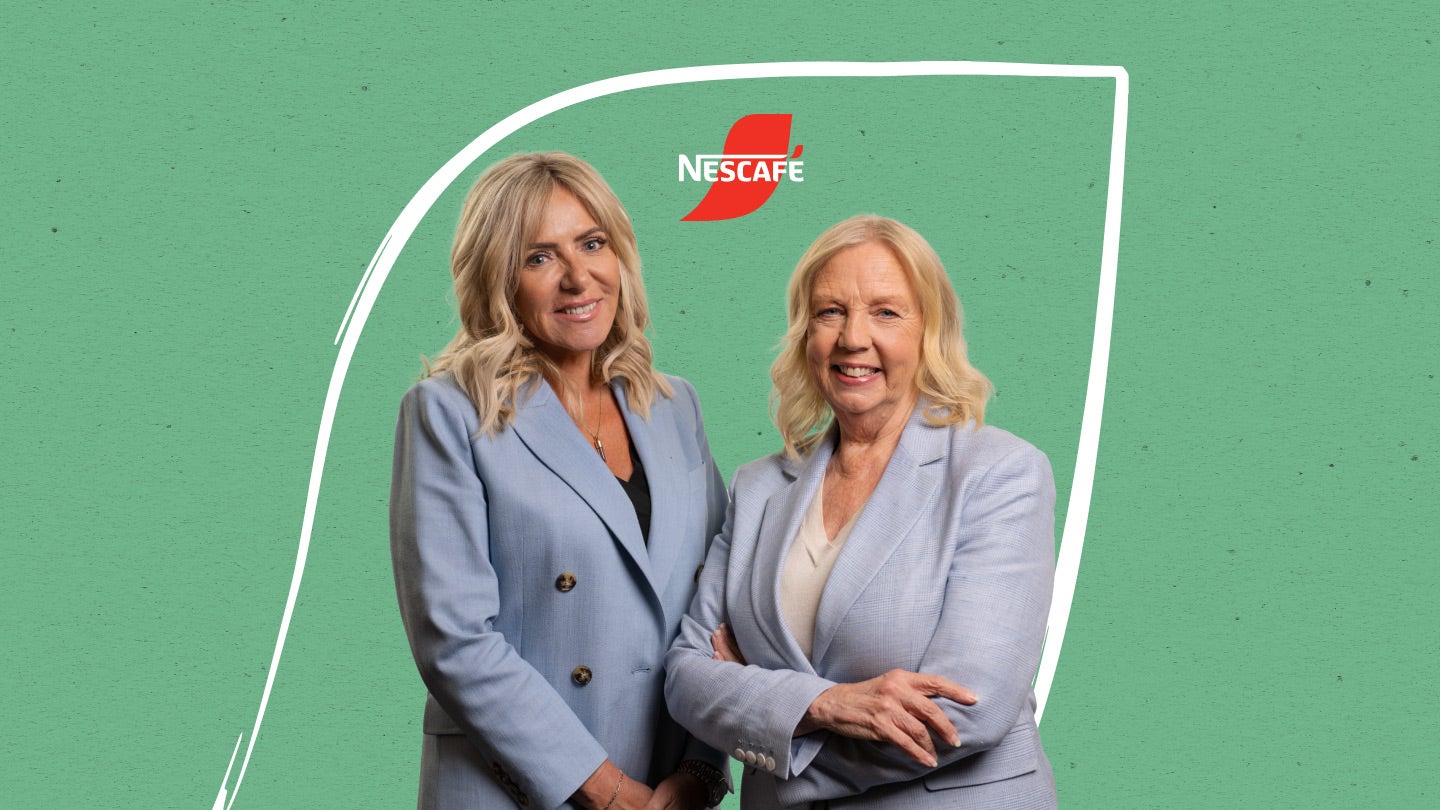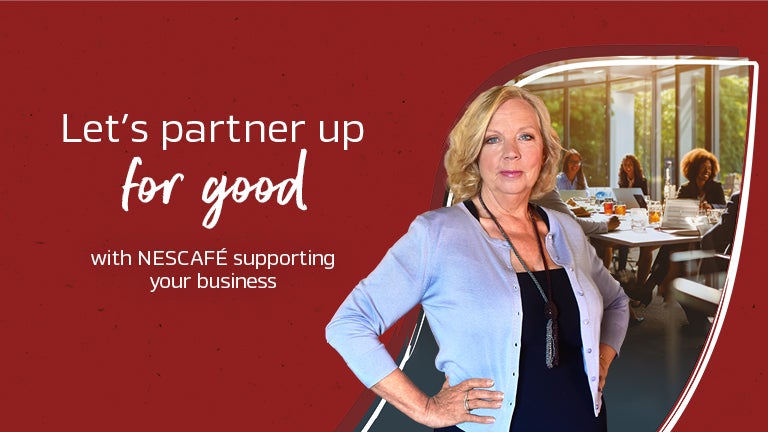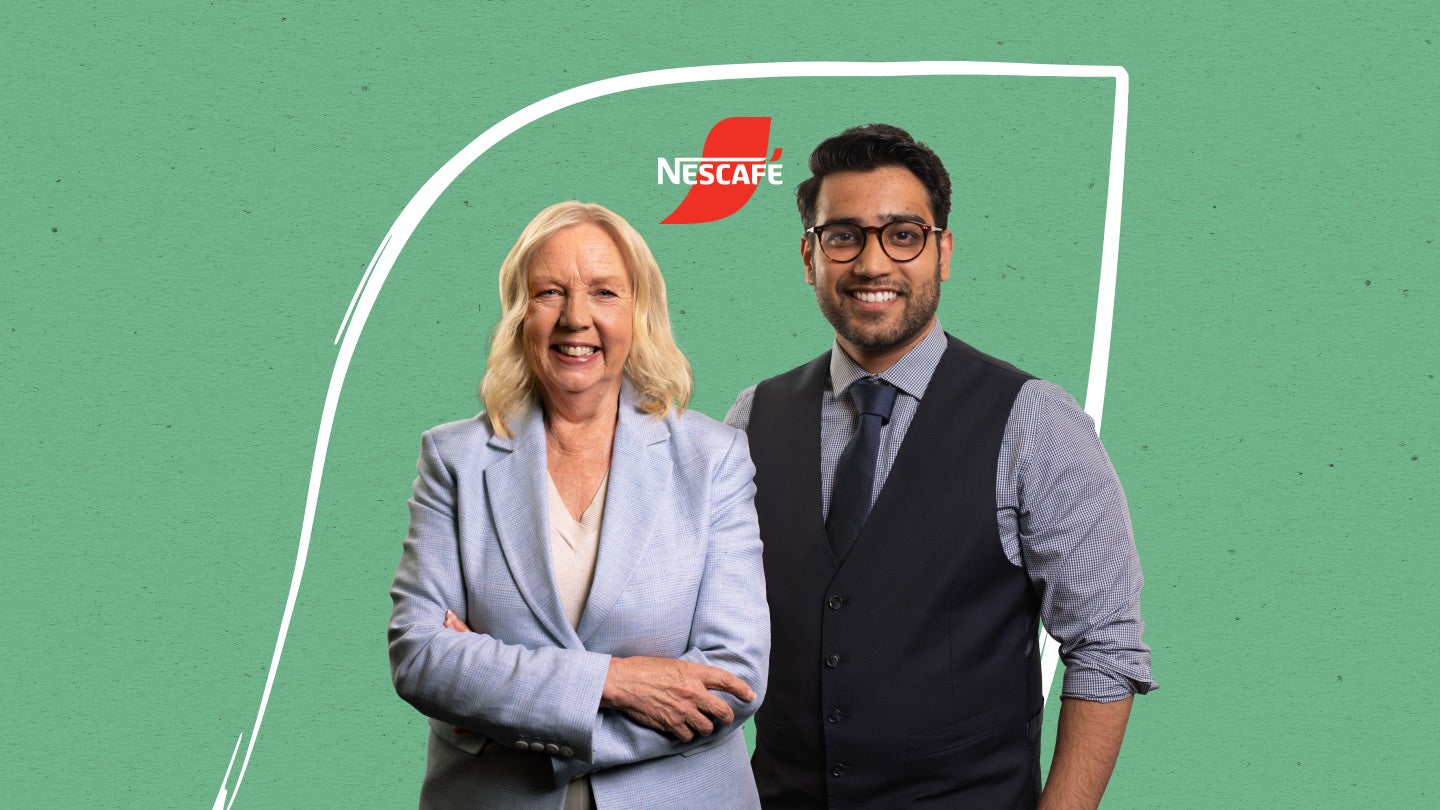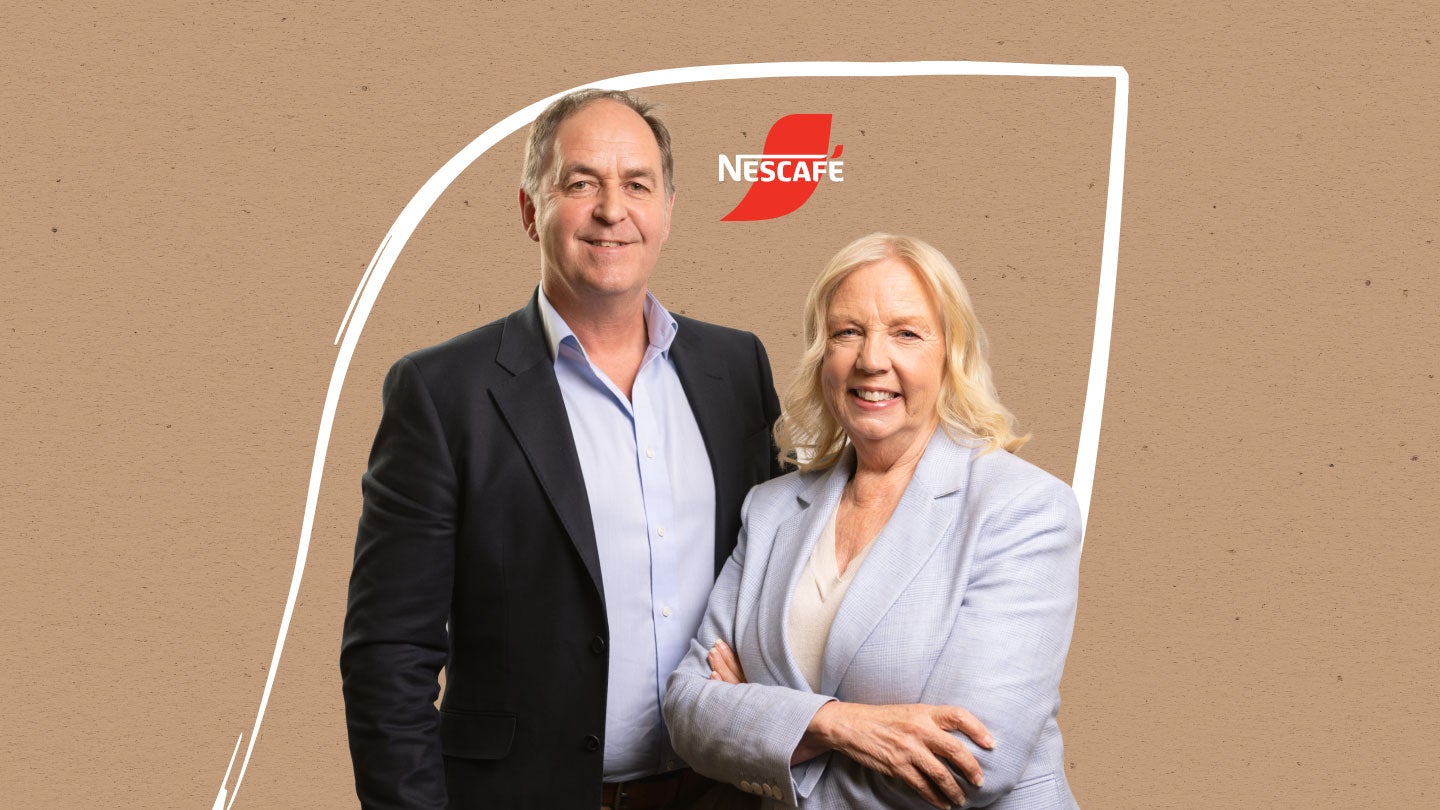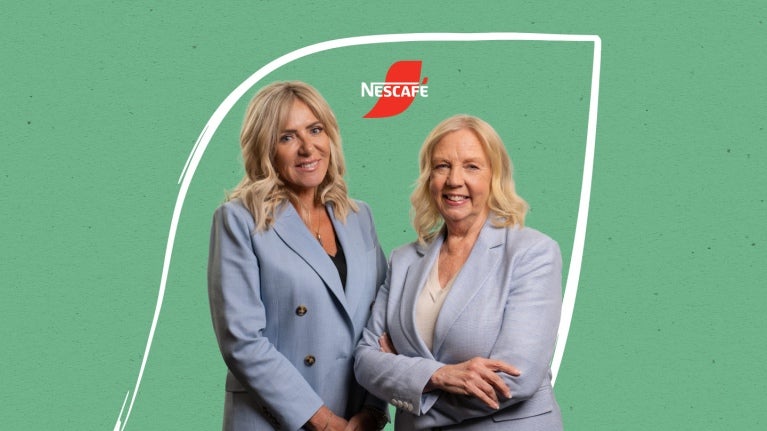
Running a sustainable business without compromising on quality
Running a sustainable business requires research and planning to ensure longevity. Watch our experts, Deborah Meaden and NESCAFÉ Community Regeneration Lead Robin Sundaram, recommend strategies for reducing vehicle emissions and incorporating sustainability into your services without sacrificing quality.
Reducing vehicle emissions
Delivering products and providing services to clients can involve a lot of driving, but carbon emissions are a concern for any business looking towards the future. Deborah Meaden and Robin Sundaram highlight three key considerations for reducing vehicle emissions:
- Plan journeys to do fewer miles
- Consider switching to electric vehicles
- Explore alternative fuel options
Plan your journeys to travel shorter distances
Journey planning: If you have multiple stops on your journey, it is a good idea to plan your route ahead of time to travel the fewest miles possible in your vehicle. If you need to make multiple deliveries, plan all deliveries in a similar area for one journey so you don’t have to drive back and forth throughout the day or week.
Carpooling: If multiple employees travel to the same site for a delivery or service, sharing a vehicle can help to reduce vehicle emissions. If employees live close to one another, they could also share a ride into the workplace on a regular basis.
Consider switching to electric vehicles (EVs)
EVs and hybrid vehicles: It’s important to give careful consideration to the types of vehicles you use, especially if your current fleet is due for renewal. Electric vehicles and hybrids are often more sustainable in terms of fuel consumption as hybrids switch between running on an electric battery and petrol/diesel. While EVs run entirely on electricity and have no exhaust emissions. To help decide what type of vehicles will work best for your business think about the age and condition of your current fleet, how many miles you typically do and other factors like if you spend a lot of time in busy town traffic or stopping and starting frequently on deliveries where EVs are likely to be a good choice.
Charging points: The biggest barrier to adopting EVs can be a lack of available charging points across the country. There are apps available to help EV drivers find their nearest charging points, and as EVs become more popular the demand for more accessible charging stations should increase. In the meantime, you may consider in-home charging for EVs and hybrids or provide charging points in your workplace car park if you have one.
Explore alternative fuel options
Hydrotreated vegetable oil (HVO): HVO is made from plant matter and vegetable oils and is a renewable form of diesel fuel, making it a more sustainable option. While HVO can only be used in vehicles with diesel engines, it can reduce greenhouse gas emissions by up to 90%.1
Liquid natural gas (LNG) and Compressed Natural Gas (CNG): LNG produces 40% less carbon dioxide than traditional petrol and diesel, making it one of the cleaner fuel sources currently available.2 It can also be 10%-25% cheaper than diesel, and can be supplied by many different countries, making it easier to shop around for a lower price.3 For fleets of smaller sized vehicles CNG may be a more viable option.4
Maintaining quality while improving sustainable practices
Switching to more sustainable practices in your business can take time, and you may be concerned about this transition period affecting the quality of your products or services. Deborah Meaden and NESCAFÉ expert, Robin Sundaram, share three tips for maintaining quality while focusing on making your business more sustainable.
- Highlight your sustainability practices
- Support your local communities
- Consider all elements of sustainability
Highlight your sustainability practices
Pay attention to your language: The way you frame your sustainability efforts to your clients or customers matters. Avoid using any language that may appear as if you are ‘greenwashing’ - providing misleading information about how environmentally conscious your business is. It’s better to be up-front about your sustainability efforts and any plans for future improvements. Just avoid making any promises you will find difficult to keep.
Sustainability is part of what you offer: Don’t keep your customers in the dark if supplies are disrupted or services take longer to perform while you improve your sustainable practices. Part of the service you’re offering is to do things in a more sustainable way, and many people will take that into account when choosing your business.
Support your local communities
Remember social sustainability: While reducing the environmental impact of your business is important, it’s also important to consider the social impact your business has on your communities. Social sustainability also includes looking after the future of your employees and suppliers. Examples include paying employees a fair wage, providing them with resources and information to do their jobs well, and making your workplace an inclusive place.
Collaborate with other businesses: You could also team up with businesses in your local area to run food banks, fundraisers for local charities, or provide other important social care. Sharing resources with other local organisations can help these community events really come together and have a larger impact.
Consider all parts of sustainability
Look at the details: When aiming to make your business as sustainable as possible, it can be easy to overlook small changes like using recycled cardboard for packaging. Stop and consider the details when it comes to making all parts of your products or services more sustainable - from the packaging and cleaning supplies to suppliers and delivery process.
Don’t forget the bigger picture: It can be easy to lose sight of why you’re making your business more sustainable, so remembering the bigger picture can help put your efforts in perspective. Climate change is already having an impact, with unpredictable weather patterns affecting supply chains as well as the health and welfare of the people living in affected areas. By aiming to run a more sustainable business, you can be part of the solution.
1. https://www.gov.uk/government/publications/greenhouse-gas-reporting-con…
2. https://www.nationalgrid.com/stories/energy-explained/what-is-liquefied…
3. https://www.calor.co.uk/commercial-gas/solution-for/transport/lng
4. IVECO Daily CNG, The most sustainable IVECO Daily | Iveco
